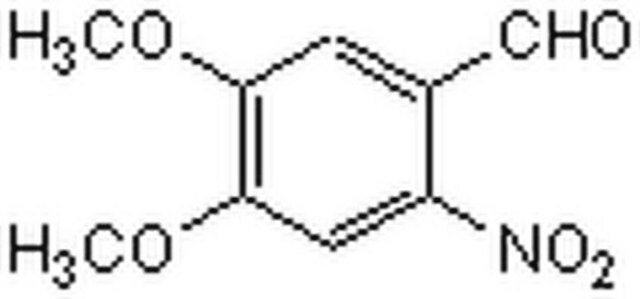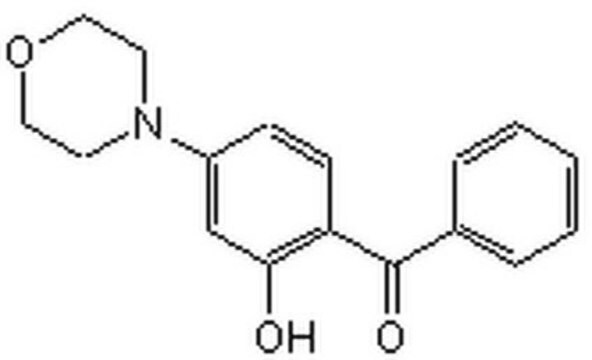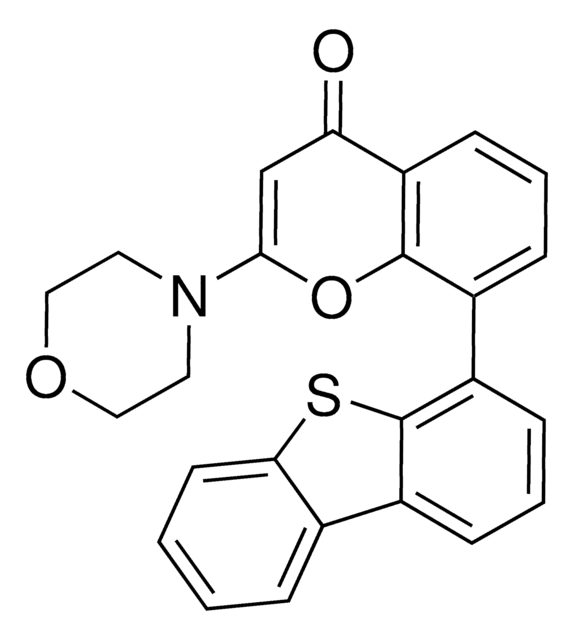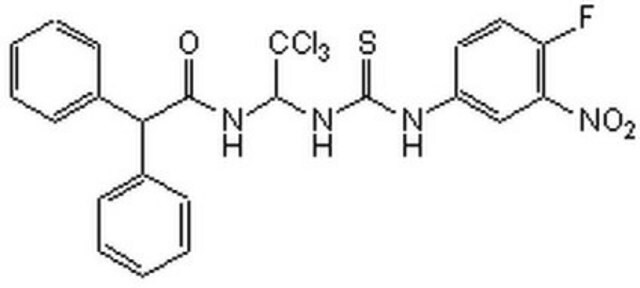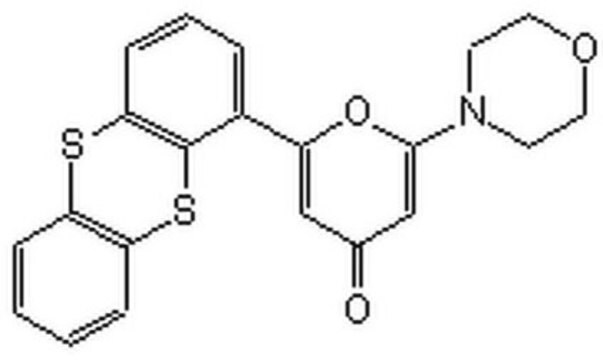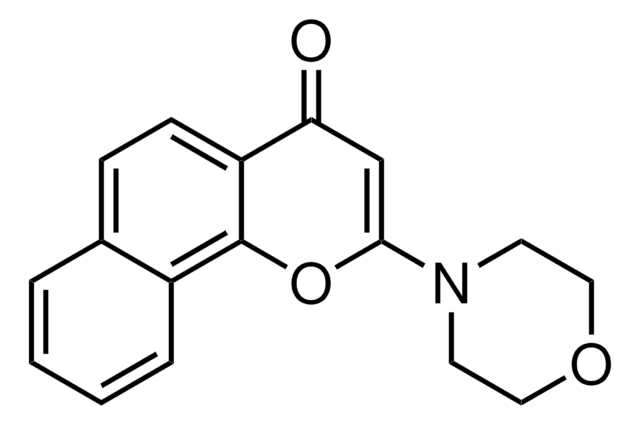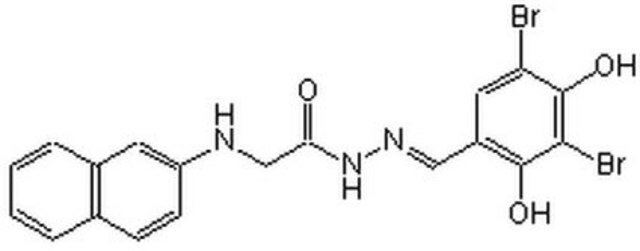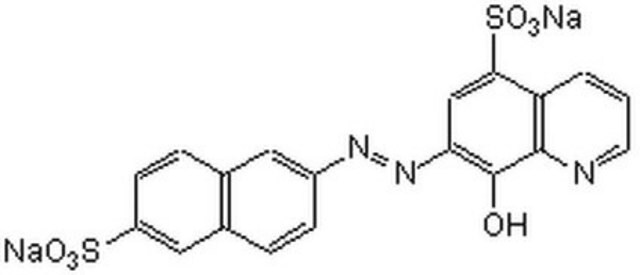260961
DNA-PK Inhibitor II
The DNA-PK Inhibitor II, also referenced under CAS 154447-35-5, controls the biological activity of DNA-PK. This small molecule/inhibitor is primarily used for Phosphorylation & Dephosphorylation applications.
Synonym(s):
DNA-PK Inhibitor II, NU7026, DNA-Dependent Protein Kinase Inhibitor II, 2-(Morpholin-4-yl)-benzo[h]chromen-4-one, LY293646
About This Item
Recommended Products
Quality Level
Assay
≥95% (HPLC)
form
crystalline solid
manufacturer/tradename
Calbiochem®
storage condition
OK to freeze
protect from light
solubility
DMSO: 2 mg/mL
methanol: 700 μg/mL
shipped in
ambient
storage temp.
2-8°C
InChI
1S/C17H15NO3/c19-15-11-16(18-7-9-20-10-8-18)21-17-13-4-2-1-3-12(13)5-6-14(15)17/h1-6,11H,7-10H2
InChI key
KKTZALUTXUZPSN-UHFFFAOYSA-N
General description
Biochem/physiol Actions
DNA-PK
Packaging
Warning
Reconstitution
Other Notes
Hollick, J.J., et al. 2003. Bioorg. Med. Chem. Lett.13, 3083.
Veuger, S.J., et al. 2003. Cancer Res.63, 6008.
Vlahos, C.J., et al. 1994. J. Biol. Chem.269, 5241.
Legal Information
Storage Class Code
11 - Combustible Solids
WGK
WGK 3
Certificates of Analysis (COA)
Search for Certificates of Analysis (COA) by entering the products Lot/Batch Number. Lot and Batch Numbers can be found on a product’s label following the words ‘Lot’ or ‘Batch’.
Already Own This Product?
Find documentation for the products that you have recently purchased in the Document Library.
Our team of scientists has experience in all areas of research including Life Science, Material Science, Chemical Synthesis, Chromatography, Analytical and many others.
Contact Technical Service